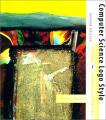
Introduction to High-Performance Scientific Computing
by Victor Eijkhout
Publisher: University of Texas 2014
Number of pages: 535
Description:
A course in everything that it takes to be a successful computational scientist: computer architecture, parallel computers, machine arithmetic, numerical linear algebra, applications. The contents of this book is a combination of theoretical material and selfguided tutorials on various practical skills.
Download or read it online for free here:
Download link
(38MB, PDF)
Similar books
 How to think like a Computer Scientist (C++ Version)
How to think like a Computer Scientist (C++ Version)by Allen B. Downey
This book teaches you to think like a computer scientist - to combine the best features of mathematics, natural science, and engineering, to use formal languages to denote ideas, to observe the behavior of complex systems, form hypotheses, etc.
(25218 views)
 Computer Science Logo Style
Computer Science Logo Styleby Brian Harvey - The MIT Press
This series is for people who are interested in computer programming because it's fun. The three volumes use the Logo as the vehicle for an exploration of computer science from the perspective of symbolic computation and artificial intelligence.
(20421 views)
 Foundations of Computer Science
Foundations of Computer Scienceby Lawrence C Paulson - University of Cambridge
This text teaches programming and presents some fundamental principles of computer science, especially algorithm design. The programming in this course is based on the language ML and mostly concerns the functional programming style.
(23465 views)
 Mathematical Foundations of Computer Science
Mathematical Foundations of Computer Scienceby Susan Rodger - Duke University
These lecture notes present an introduction to theoretical computer science including studies of abstract machines, the language hierarchy from regular languages to recursively enumerable languages, noncomputability and complexity theory.
(16655 views)